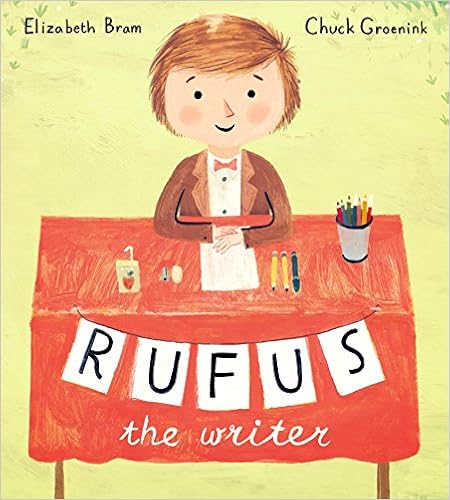Writing is
powerful. Writing helps us to communicate, persuade, reflect, and learn. Lucy Calkins, in a video
created for the National Day of Writing in 2009, discussed the power of writing
and the potential it has for fostering
change. She provided a very heartwarming
example when she told about a class of students who were inspired to throw a birthday party for
a fellow student. This student had previously shared a piece of writing in which she described herself as the kind of kid who never had a birthday party. In
her message to students, Lucy Calkins stated, “Writing can change the
world. It can change your world, the
world in your classroom. It can make the
classroom into a place where you hear each other’s stories, you understand each
other’s ideas, you care about each other’s passions, you join together in each
other’s causes and what a world that will be.”
There is no doubt that writing is a skill that students need for today
and for their future.
Writing is an
important skill for students to learn, but also one of the most challenging. Writing is difficult for a variety of
reasons. Many students are also
reluctant to write. Without good writing
instruction these students will continue to avoid writing. Teaching students
about the power of writing is important, as is motivating and encouraging students
to write. If students are to realize the power of writing they need to engage in the task. They need to see themselves as writers. One way to encourage
and inspire writers is to share and discuss stories about writers. Three picture books that have the potential
for inspiring writers are: Ralph Tells a Story by Abby Hanlon, Rufus the Writer
by Elizabeth Bram, and Billy’s Booger: A Memoir (Sorta) by William Joyce.
Ralph Tells a Story
by Abby Hanlon
In this book,
Ralph’s teacher always says that, “Stories are everywhere,” yet Ralph cannot
write a story. Instead he stares at the floor, avoids writing by going to the water fountain, and begs a classmate for help. Ralph’s difficulties with
writing are those that many students can relate to. The story has a happy ending when Ralph’s
classmates help him write a story and he learns that stories really are
everywhere. This is an excellent book to
start a discussion about the struggles that writers face and how to work
through them. The endpapers show books
that Ralph has written since writing his first story. They are all related to ordinary, everyday
topics (such as "When Milk Came Out of My Nose" and "My Bathroom Emergency") and could inspire students to discover their own stories.
Rufus the Writer by
Elizabeth Bram
Rufus is looking up
at the clouds one day when he thinks to himself, “I’m not going to have a
lemonade stand this summer. I’m going to
have a story stand.” Rufus’s friends
visit his story stand and he writes them stories. Pages of the book also show the stories that Rufus
has written. The friends enjoy reading
their stories at the end of the book. This
book would be useful to create enthusiasm for writing and inspire students to
write stories for others. Rufus’s
stories, which sound like the stories that young students may write themselves,
can be a springboard for discussing imagination and creativity.
Billy’s Booger: A
Memoir (Sorta) by William Joyce
This is Joyce’s
true story about his younger self, Billy, who wrote his first book in fourth
grade. Billy, a student whose creativity
often causes him difficulty in school, is described as an odd boy by his
teacher. When the librarian announces a
writing contest, Billy writes a unique and imaginative story. Billy's story, titled, “Billy’s Booger” is
featured as a book within the book. Although
Billy is at first disappointed that his story doesn’t win the contest, he is pleased
that it becomes a favorite of his classmates. This is another book to spark students’
creativity and imagination. It can also
lead to discussions about how one’s writing can be appreciated and enjoyed even
though it may not be considered a conventional piece of writing. In addition, it may spark students’ ideas for
writing their own memoirs. Students will definitely enjoy the humor in this book.
These books can begin conversations about students' writing lives and hopefully will provide inspiration for students' own writing.
These books can begin conversations about students' writing lives and hopefully will provide inspiration for students' own writing.



No comments:
Post a Comment